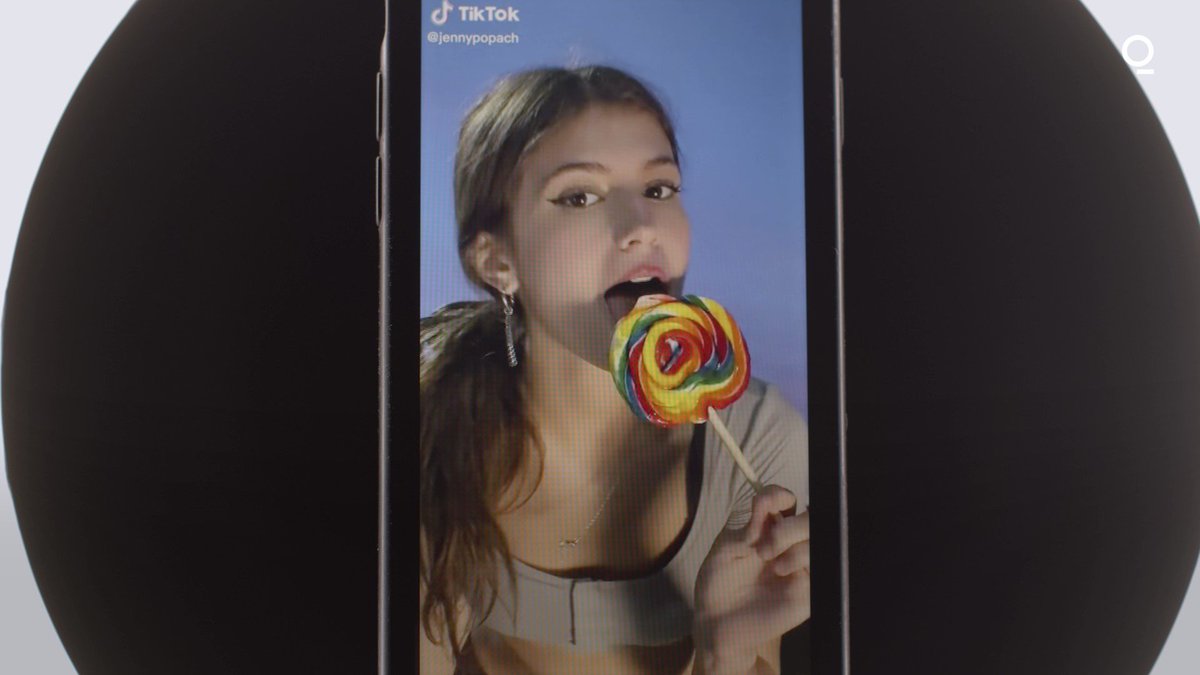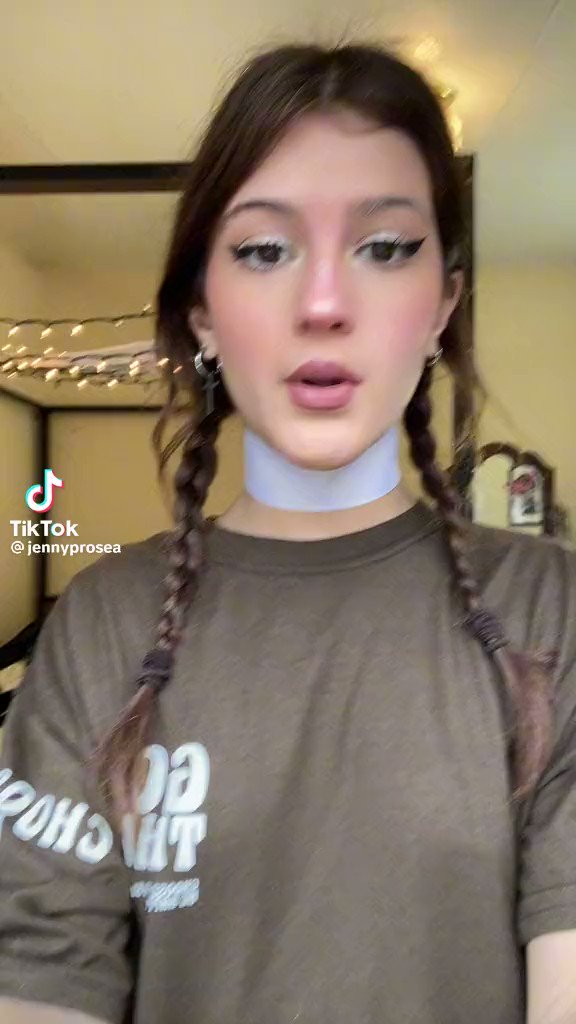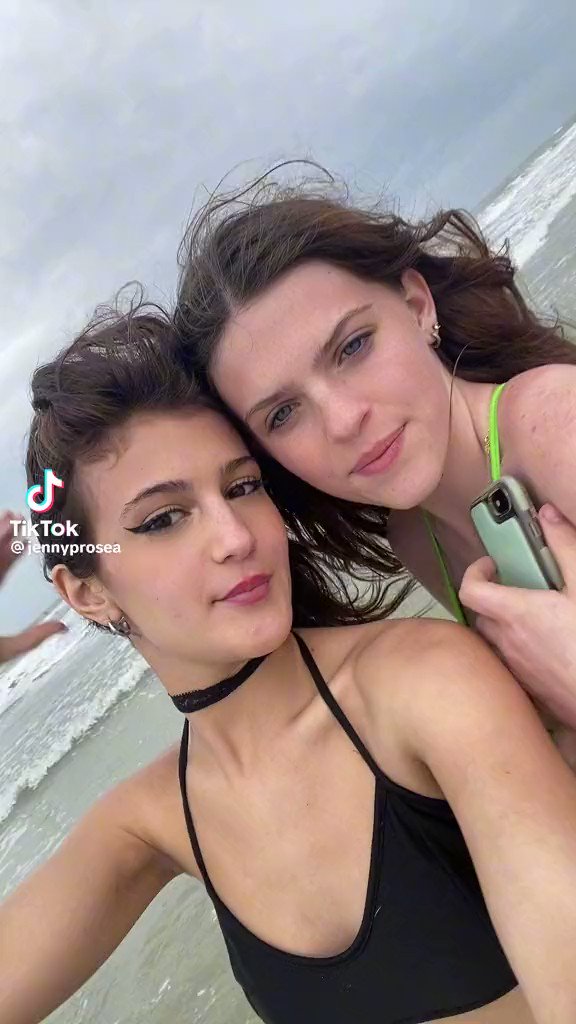Is the internet's fascination with youthful content creation blurring the lines of acceptable behavior, and where does accountability lie? The ongoing debate surrounding Roselie Arritola, known online as Jenny Popach, highlights a complex interplay of censorship, free expression, and the potential exploitation of young individuals in the digital age.
The name Jenny Popach has become a notable entry point into a discussion that touches upon the very nature of online content creation and the ethical considerations that should guide social media platforms. Arritola, a young individual, has cultivated a significant following on platforms like TikTok, where she presents herself with a particular brand of content. It's a brand that, at times, has attracted controversy, prompting internal discussions within social media companies about appropriate content moderation policies. The central question seems to be: how far can creators go, and where should the platforms step in?
| Category | Details |
|---|---|
| Full Name | Roselie Arritola |
| Online Alias | Jenny Popach |
| Known For | Content creation on TikTok and other platforms. Her content has generated both a large following and controversy regarding its appropriateness. |
| Place of Origin | Miami, Florida, USA. |
| Languages | English and Spanish |
| Professional Background | Professionally trained dancer and actor. |
| Controversial Aspects | Some of her content has been deemed risque, leading to debates regarding online safety, content moderation, and the protection of minors. |
| Platforms | Primarily TikTok, YouTube Shorts. |
| Potential Future | Claims to be a future A-list celebrity. |
| Reference Website | Roselie Arritola TikTok |
Her online presence is multifaceted. Arritola often greets her audience with the phrase, "Hey, i'm roselie arritola aka jenny popach and you're watching your favorite youtube shorts girly !," a statement that underscores her dual identity and her embrace of the platform. She proclaims her origins in Miami, Florida, highlighting her bilingualism, with facility in both English and Spanish. The self-proclaimed "future A-list celebrity" also identifies as a professionally trained dancer and actor, suggesting aspirations that extend beyond the realm of social media.
The core of the issue is the content itself. Discovering videos related to "jenny popach slip slip" or "jenny popach leaks" reveals a darker side to the phenomenon. The presence of terms like "fanfix," "leaks," and the promotion of exclusive content raises concerns about privacy, the potential for exploitation, and the monetization of sensitive material. It's a landscape where individuals, sometimes underage, may find themselves caught in a cycle of exposure.
The situation also highlights the complexities surrounding content moderation on platforms like TikTok. The site must constantly balance the need to protect users, especially children, with the principle of free expression. TikTok's community guidelines prohibit certain types of content, including sexually suggestive material and content that exploits, abuses, or endangers children. However, enforcement is a constant challenge, particularly when dealing with user-generated content at a massive scale.
Beyond the platform's rules, the issue also touches upon the responsibilities of the audience. The search for "jenny popach telegram link?" illustrates the potential for inappropriate interactions, with users attempting to access exclusive content. Such behavior, as well as the discussions of "fanfix," "leaks," and "sextape," underscores the need for critical consumption of online media and awareness of the risks associated with it.
The consequences can be severe. As the story of Arritola demonstrates, a single video can be enough to spark controversy. The deletion of a video where her brother "unwrapped" her to the tune of Ariana Grande's "Santa Tell Me," is a stark example. The reactions ranged from concern to dismissiveness, illustrating the wide range of opinions. Some responses, such as "ok grandma she can do what she wants", represent a dismissive attitude, while others reflect genuine concern.
The conversation about Arritola is one example within a larger trend. The popularity of platforms like TikTok has produced a new generation of young content creators. While many of these individuals create harmless or entertaining content, the potential for exploitation is significant. The rise of "fanfix" culture, the demand for "leaked" content, and the presence of explicit material require careful consideration. The ease with which such content can be created, shared, and monetized raises ethical questions that have yet to be fully addressed.
The legal aspect of this issue is still being formed. The legal implications of content creation, sharing, and monetization, especially when it involves minors, are still evolving. Data privacy laws, copyright regulations, and the potential for exploitation are just some of the legal areas where clarification is needed. The law lags behind technological and social change and the legal ramifications of these situations are often decided case by case.
The issue isn't confined to one individual. The widespread interest in "jenny popach fanfix," "jenny popach leaks," and related searches indicates a broader interest in the content of young creators. This demand generates a parallel economy, where individuals and websites seek to monetize exclusive material, frequently outside of legal frameworks. This raises the stakes for everyone involved, creating a potentially dangerous situation.
The conversation extends beyond the individual's actions to encompass the role of online communities. The presence of "telegram groups" dedicated to Arritola's content indicates a desire to exchange and share material outside of mainstream social media platforms. These spaces can provide an environment for users to engage in questionable behavior, to disseminate private information, and to create content that violates rules and laws. The relative anonymity provided by such platforms can further embolden users.
It is important to be aware of what is being created and shared. Terms like "nip slips" and content sold "for cheap" suggest a commercial relationship, where an individual is being financially rewarded for sharing intimate images or videos. The lines between creator, platform, and audience can become blurred.
The media ecosystem that surrounds such creators is often complex and difficult to navigate. The rapid growth of social media platforms and content creation has outpaced traditional media's capacity for oversight. Moreover, the financial incentives for creating provocative content can encourage creators to push boundaries, increasing the risk of exploitation and abuse.
The incident involving Arritola is not just a case of a single person; it serves as a microcosm of wider problems within the world of social media. The convergence of young individuals, public attention, and the potential for profit creates a volatile situation. The ethical responsibility lies not only with the individuals involved, but also with the social media platforms, the audience, and legal and regulatory bodies.
The future of this discussion will likely include increased calls for transparency and accountability from social media platforms. Greater efforts may be made to protect young creators, including measures to prevent the distribution of exploitative content and to detect and remove such material. There may also be a push to increase public awareness about the potential dangers of creating and consuming online content.
This situation is not confined to a particular location or demographic. The use of the Spanish language in some of Arritola's content and her declaration of Miami origins, indicate the global character of the issue. The prevalence of these conversations, searches, and the production of content in different languages highlights the necessity for a comprehensive, international strategy to address the associated problems.
The content discussed raises important questions about personal privacy and digital footprints. Every action, from a fleeting TikTok clip to a photograph, leaves a permanent mark on the internet. This means that any material which is created and shared can be accessed and redistributed, frequently out of the control of the person involved. This emphasizes the necessity for every individual, and especially young people, to be aware of the potential consequences of sharing intimate content.
The need to protect vulnerable persons must be at the forefront of this discussion. The use of the internet provides unique challenges for those who are vulnerable to exploitation. The anonymity and the possibility of sharing content with a massive audience can create opportunities for abuse and exploitation that did not exist before the widespread adoption of social media. It's essential to balance the freedom of expression with the safety of those most at risk.
The story of Jenny Popach is a microcosm of a wider issue. It encapsulates many of the challenges posed by the rise of social media and the impact of the internet on contemporary culture. It highlights the need for ongoing conversation, action, and adjustment to ensure that all individuals are protected in the ever-changing digital world.


